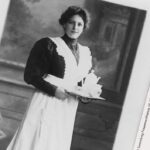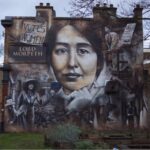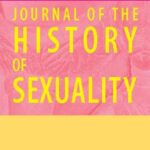 Michael Mitterauer-Lectures an der Österreichische Akademie der Wissenschaften (ÖAW) (Web)
Michael Mitterauer-Lectures an der Österreichische Akademie der Wissenschaften (ÖAW) (Web)
Zeit: 07.03.2024, 18.00 Uhr
Ort: ÖAW , Festsaal, Dr. Ignaz Seipel-Pl. 2, 1010 Wien
Anmeldung (Web)
Aufklärung war für Maria Theresia ein Schimpfwort. Sie betrachtete die Bewegung als unerhörte menschliche Anmaßung und gefährliches, gottloses Geschwätz; Klassiker wie Montesquieu oder Diderot waren in der Hofburg streng verboten. Das schloss nicht aus, dass sie in der Sache aufgeklärten Grundsätzen folgte, ohne es zu wissen. Der Vortrag geht dem widersprüchlichen Verhältnis der Herrscherin zur Aufklärungsbewegung nach, die ihrerseits höchst ambivalent war.
- Begrüßung: Heinz Fassmann, Präsident der ÖAW und Margareth Lanzinger, Vorständin des Instituts für Wirtschafts- und Sozialgeschichte der Univ. Wien
Barbara Stollberg-Rilinger ist Professorin für Geschichte der Frühen Neuzeit und seit 2018 Rektorin des Wissenschaftskollegs zu Berlin. Ihr Forschungsfeld ist die Verfassungs-, Politik- und Kulturgeschichte Europas vom 16. bis 18. Jhd., vor allem der Aufklärung und des Heiligen Römischen Reiches Deutscher Nation. Dabei richtet sie das Hauptaugenmerk auf Rituale und Verfahren, Zeremonien, Metaphern und Symbole. Ihre Biographie „Maria Theresia. Die Kaiserin in ihrer Zeit“ (C.H. Beck 2017, engl. Übers. 2022) wurde zuletzt mit dem Österreichischen Staatspreis für Geschichte der Gesellschaftswissenschaften ausgezeichnet. Derzeit arbeitet sie an einer Biographie des „Soldatenkönigs“ Friedrich Wilhelm I. von Preußen. Jüngste Veröffentlichung (gemeinsam mit André Krischer): Tyrannen. Eine Geschichte von Caligula bis Putin (München 2022).
Die Michael Mitterauer Lectures sind nach dem 2022 verstorbenen bedeutenden österreichischen Wirtschafts- und Sozialhistoriker Michael Mitterauer benannt und werden die Geschichtswissenschaften in ihrer ganzen Breite abdecken. Continue reading

 Queer Kinship: Affects, Families, Bonds
Queer Kinship: Affects, Families, Bonds  Centre for Feminist Research at York Univ., Toronto
Centre for Feminist Research at York Univ., Toronto  Institut für historische Sozialforschung, Arbeiter:innenkammer (AK) Wien
Institut für historische Sozialforschung, Arbeiter:innenkammer (AK) Wien  ZARAH: Women’s labour activism in Eastern Europe and transnationally
ZARAH: Women’s labour activism in Eastern Europe and transnationally  Collegium Hungaricum Wien
Collegium Hungaricum Wien  Journal of the History of Sexuality
Journal of the History of Sexuality